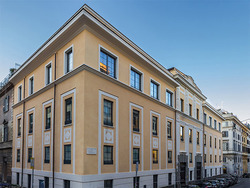Rome Advisory Committee
Since 2014, the Cushwa Center has collaborated with Notre Dame’s Rome Global Gateway to host two international seminars, a major conference, frequent lectures and panels, and two research fellowships in Rome, Italy. Members of the Cushwa Center’s Rome Advisory Committee share their expertise and scholarship with the center, participate in its Rome events, and suggest new initiatives involving their own universities. The committee was inaugurated in November 2017 and is chaired by Luca Codignola, Cushwa’s senior fellow in Rome.
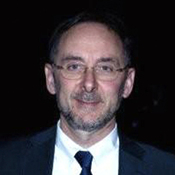
Gianfranco Armando, D.L. (Turin), Diploma in Archives Sciences Scuola di Archivistica, Paleografia e Diplomatica, Turin, D.Th. (Gregoriana, Rome), is archivist and consultant at the Vatican Apostolic Archives. He has been affiliated with the Office for Ecclesiastical Cultural Heritage of the Italian Bishops’ Conference (1999–2001) and with the Pontifical Commission for the Cultural Heritage of the Church, where he contributed to the Enchiridion of the Cultural Heritage of the Church (2002). He joined the Vatican Apostolic Archives in 2001, where he organized the documentary collections of the apostolic nunciatures in Florence (1560–1859), France (1921–60), the Netherlands (1935–58), and China (1946–59); of the Pontifical Commission for Assistance in Italy/Pontificia Opera di Assistenza in Italy (PAO) (1944–70); and of the Opera Nazionale di Assistenza Religiosa e Morale degli Operai (ONARMO) (1922–70). He has also been affiliated with the École Française in Rome; the Kommission für Zeitgeschichte in Münster; СЕРЕБРЯНЬІЙ ВЕК in St. Petersburg; Dar al-Athar al-Islamiyyah in Kuwait City; the Max-Planck Institute for European Legal History in Frankfurt-am-Mainp; Boydell & Brewer in the United Kingdom; and Millî Savunma Üniversitesi Yayinlari in Istanbul. He is the author of Gli Eremiti Camaldolesi di Piemonte 1601–1801 (2017), and editor of I Cistercensi Foglianti in Piemonte tra chiostro e corte (secoli XVI–XIX) (2020).
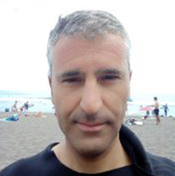
Matteo Binasco, D.L. (Genova), M.A. (Saint Mary’s), Ph.D. (NUI Galway), is tenured assistant professor in early modern history at Università per Stranieri di Siena. He has been a research fellow at the Istituto di Storia dell’Europa Mediterranea of Italy’s National Research Council (CNR), and a postdoctoral fellow at the Cushwa Center for the Study of American Catholicism at the University of Notre Dame. From 2021 to 2023, he was principal investigator for the project “I+D+I en el marco del Programa Operativo FEDER Andalucía 2014–2020” at Universidad Pablo de Olavide (Seville). He has authored Roman Sources for the History of American Catholicism, 1763–1939 (2018); Making, Breaking and Remaking the Irish Missionary Network: Ireland, Rome and the West Indies in the Seventeenth Century (2020); and French Missionaries in Acadia/Nova Scotia, 1654–1755. On a Risky Edge (2022). He has also edited Little Do We Know: History and Historians of the North Atlantic World, 1492–2010 (CNR-ISEM, 2011); Rome and Irish Catholicism in the Atlantic World, 1622–1908 (2018); and Luke Wadding, the Irish Franciscans and Global Catholicism (2020). His areas of interest include Anglo-Irish communities in early-modern Rome and Irish migration in the Atlantic world between the 16th and late 18th centuries.
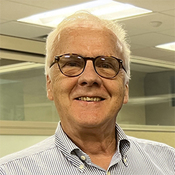
Luca Codignola, D.L. (Sapienza, Rome), M.A. (Toronto), D.Litt. (Saint Mary’s), FRSC, is senior fellow of the Cushwa Center for the Study of American Catholicism of the University of Notre Dame and adjunct professor at the Department of History of Saint Mary’s University. He has taught at Bologna, Pisa, Genoa, Rome (Regina Apostolorum), York (Toronto), Laval, McGill, and Saint Mary’s, and has also been variously associated with universities and academic institutions in Salzburg, London, Ottawa, Montréal, Providence, Toronto, Minneapolis, and Philadelphia. He is best known for his work on the Roman Catholic Church in the North Atlantic area in the early modern era, and has also written on the history of early European expansion in the Atlantic region. His latest books are Colombo e altri navigatori (2007); Le Saint-Siège, le Canada et le Québec, with G. Pizzorusso and M. Sanfilippo (2011); Little Do We Know: History and Historians of the North Atlantic, 1492–2010, ed. M. Binasco (2011); Storia del Canada, with L. Bruti-Liberati (1999, 2018); and Blurred Nationalities Across the North Atlantic: Traders, Priests, and Their Kin Travelling Between North America and the Italian Peninsula, 1763–1846 (2019).
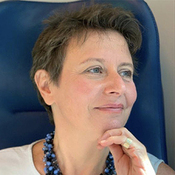
Elisabetta Corsi, D.L. (Sapienza, Rome), M.A. (Beijing Daxue), Ph.D. (Sapienza, Rome), is chair and professor of Sinology and East Asian History at Sapienza Università di Roma. She previously taught at El Colegio de México (1994–2007). Since 2015 she has served as deputy chair of the Humanities and Social Sciences Panel (JRS) of the Research Grant Council of Hong Kong, and is currently a member of the Quality Assurance Board of Sapienza Università di Roma and of the Committee for the Assessment of Research in Public Science and Technology Transfer of Italy’s Department of University and Research. Her research focuses on the role of Jesuit missionaries as scientific mediators during the early modern period. Her latest publications include Órdenes religiosas entre América y Asia. Ideas para una historia misionera de los espacios coloniales (2008), “Idolatrous Images and True Images: European Visual Culture and Its Circulation in Early Modern China,” in R.S. O’Toole, I. Del Valle, and A.H. More, eds., Iberian Empires and the Roots of Globalization (2020); and “The Eclipse of 21 June 1629 in Beijing in the Context of the Reform of the Chinese Calendar,” Journal of Astronomical History and Heritage, 23 (2020), with S. di Serego Alighieri.
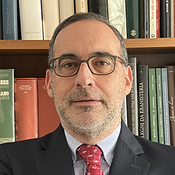
Giovan Battista Fidanza, D.L., Ph.D. (Perugia), is professor of early modern art history at Università Tor Vergata (Rome), where he has served as director of the National Ph.D. Programme in Cultural Heritage since 2022. He has also been visiting professor at Pennsylvania State University, Erie, The Behrend College (2013), and director of Villa Mondragone, a monumental complex (papal villa) owned by Università Tor Vergata (2020–22). His research focuses on art patronage in the 17th century and the history of wooden sculpture in the early modern period in Central Italy, particularly in the Papal States and Florence. On these subjects he recently published articles in peer reviewed journals (including The Burlington Magazine, Renaissance Studies, Wiener Jahrbuch für Kunstgeschichte, Artibus et Historiae) and books such as Luke Wadding’s Art: Irish Franciscan Patronage in Seventeenth-Century Rome (2016); Andrea Sacchi and Cardinal del Monte: The Rediscovered Frescoes in the Palazzo di Ripetta in Rome (2022); and Patronage and Devotion (2022).
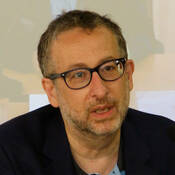
Massimo Carlo Giannini, D.L. (Pavia), Ph.D. (Repubblica di San Marino), is professor of early modern history at Università di Teramo; scientific director of Istituto Sangalli per la Storia e le Culture Religiose (Florence); research fellow of Instituto Europeo la Corte en Europa at Universidad Autónoma de Madrid; and research fellow of Red Columnaria–Red temática de investigación sobre las fronteras de las Monarquías Ibéricas. In 2014, he was a visiting fellow at the École des hautes études hispaniques et ibériques, Casa de Velázquez (Madrid). His main research interests are the history of papal finances in the early modern age; the history of religious orders; and the financial and political history of the Spanish monarchy. He is currently researching non-white Catholic clergymen (of indigenous, African, and mixed descent) on a global scale, from the 16th to the 18th centuries. He recently authored I domenicani (Il Mulino, 2016), which has been translated into Polish and Ukrainian, and Per difesa comune. Fisco, clero e comunità nello Stato di Milano (1535–1659). Vol. 1: Dalle guerre d’Italia alla pax hispanica (1535–1592) (Sette città, 2017), and edited Papacy, Religious Orders, and International Politics in the Sixteenth and Seventeenth Centuries (Viella, 2013), and Fiscalità e religione nell’Europa cattolica. Idee, linguaggi e pratiche (secoli XIV–XIX) (Viella, 2015).
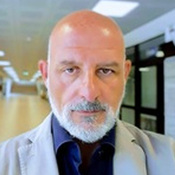
Manfredi Merluzzi, D.L., M.A. (Sapienza, Rome), Ph.D. (Genoa), is professor of early modern history at Università Roma Tre, where is head of the Department of Humanities and director of the Advanced Program in Historical Communication: Multimedia and Digital Languages. He is a member and leader of several international research groups. His main research interests are the history and representations of power between Europe and America in the Spanish monarchy, and the role of religion in the construction of viceregal colonial societies. His publications include Gobernando los Andes. Francisco de Toledo virrey del Perú 1569–1581 (2014); Para la Quietud del Reino. Negociación y gobierno en el Perú (1533–1581) (2019); Conoscenza, governo e narrazione del potere nelle Monarchie Iberiche (secoli XVI–XVIII), with G. Sabatini and F. Tudini (2020); La Vergine contesa: Roma, l’Immacolata Concezione e l’universalismo della Monarchia Cattolica (2022), with G. Sabatini and F. Tudini. He has also published “La costruzione letteraria della capitale: Bernabé Cobo e la Historia de la fundación de Lima (1639),” Quaderni-Mediterranea-Ricerche storiche (2020), pp. 63–94; and “Alzarse con la tierra. Rebelión, lenguaje e imaginario político en la revuelta peruana de 1543–1548,” in A. Hugon and A. Merle, eds., Soulèvements, révoltes, révolutions dans la monarchie espagnole au temps des Habsbourg (2016), pp. 11–31.
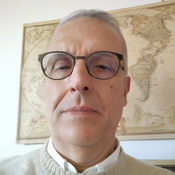
Giovanni Pizzorusso, D.L. (Pisa), Ph.D. (Genova), is associate professor of early modern history at Università G. d’Annunzio (Chieti-Pescara). He has been visiting professor at the École des Hautes Études en Sciences Sociales (Paris), the Max-Planck Institut (Frankfurt am Main), and Université Paris 7-Denis Diderot. His main research interests are the history of Catholic missionary institutions in the age of early globalization (Propaganda Fide) and the role of missionaries in the circulation of knowledge in Atlantic and global contexts. He recently published Propaganda Fide, I. La Congregazione pontificia e la giurisdizione sulle missioni (2022); “From the Americas to Rome: Paths of Knowledge among the Roman Curia during the Seventeenth Century,” in Guido Abbattista, ed., Knowledge and Representation of the World in Italy from the Sixteenth to the Early Nineteenth Century (2021), pp. 73–90; “The New World of the New Society of Jesus: Giovanni Antonio Grassi and his Notizie varie sullo stato presente della Repubblica degli Stati Uniti (1818),” in P.-A. Fabre, P. Goujon, and M.M. Morales, eds., La Compagnie de Jésus des anciens régimes au monde contemporain (XVIIIe–XXe siècles) (2020), pp. 483–499.
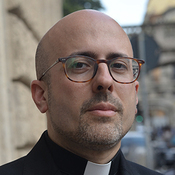
Roberto Regoli, HED, HEL, PhBA, STBA (Gregoriana, Rome), is professor of modern church history at the Pontifical Gregorian University (Rome) where he serves as head of the Department of Church History and editor of Archivum Historiae Pontificiae. His areas of research include the history of the papacy, the Roman Curia, and pontifical diplomacy from the 19th to the 21st century. He is a member of the scientific committee of the Apostolic Penitentiary for the organization of historical conferences, of the Centro Studi di Cultura Cristiana of the Giorgio La Pira International Center of Florence, and of Premio Ambasciatori presso la Santa Sede. He also sits on the boards of Analecta Augustiniana and Verba Theologica (Slovakia) and founded and coordinates the “Pontificia” section of the “Cultura” series of Edizioni Studium. He recently authored Ercole Consalvi. Le scelte per la Chiesa (2006); Oltre la crisi della Chiesa. Il pontificato di Benedetto XVI (2016); Tra Pio X e Benedetto XV. La diplomazia pontificia in Europa e America Latina nel 1914, with P. Valvo (2018); and La Santa Sede, gli Stati Uniti e le relazioni internazionali durante il pontificato di Pio XII. Studi dopo l’apertura degli archivi vaticani (1939–1958), with M. Sanfilippo (2022). He also recently edited La religione dei nuovi tempi. Il riformismo spirituale nell'età di Leone XII, with I. Fiumi Sermattei (2020).
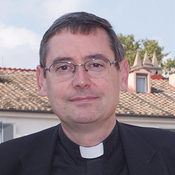
Federico M. Requena, D.L. (Murcia), M.A. (Murcia, Santa Croce), Ph.D. (Navarra), is senior fellow at the Istituto Storico San Josemaría Escrivá at the Pontificia Università della Santa Croce in Rome, and editor of its academic journal, Studia et Documenta. He is a researcher at the Universidad de Navarra and has been a visiting fellow at the Jacques Maritain Center at the University of Notre Dame. His research focuses on United States and European religious history, religious historiography, and the history of Opus Dei. He has authored Espiritualidad en la España de los años veinte (1999), Fuentes para la Historia del Opus Dei (2002), and Católicos, devociones y sociedad durante la dictadura de Primo de Rivera y la Segunda República (2008). Contributions in US Catholic Historian include “The Impact of the Second Vatican Council on United States Catholic Historiography” (2015); “‘Harvard and Catholic . . . are not incompatible’: Father William Porras’ Chaplaincy at Harvard University, 1954–1960” (2018); and “Apostolic Sanctity in the World: Joseph E. Haley, C.S.C., and Total Dedication for the Laity on the Eve of Vatican II, 1949–1961” (2022).
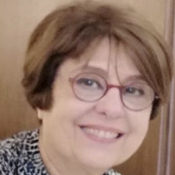
Daniela Rossini was, until 2022, professor of North American history and women’s international history at Università Roma Tre. She spent three years at Harvard University as a Fulbright scholar in the History Department and as a fellow of the Charles Warren Center for Studies in American History, with which she has since been periodically affiliated. Her research interests include World War I, Woodrow Wilson’s diplomacy, Italian-American relations, war relief and propaganda, and women’s transnational history in the early decades of the 20th century. Her publications have appeared in Italy, France, the United Kingdom, Germany, the Netherlands, Switzerland, and the United States. Her latest authored books include Woodrow Wilson and the American Myth in Italy: Culture, Diplomacy, and War Propaganda (2008); Donne e propaganda internazionale. Percorsi femminili tra Italia e Stati Uniti nell’età della Grande Guerra, (2015). She has also edited 1917. L’inizio del secolo americano. Politica, propaganda e cultura in Italia tra guerra e dopoguerra (2018), with L. Benadusi and A. Villari. Her latest article is “The Activity and Influence of the American Red Cross in Italy During and After World War One, 1917–1919,” European Review of History, XXX, 5 (2023).
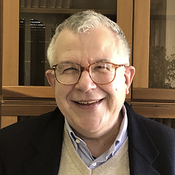
Matteo Sanfilippo, D.L. (Sapienza, Rome), Ph.D. (Genova), is professor of early modern history at Università della Tuscia (Viterbo). He is also scientific director of Fondazione Centro Studi Emigrazione (Rome), director of the Istituto Storico Scalabriniano (Rome), co-editor of the journal Archivio storico dell’emigrazione italiana, and managing editor of Studi Emigrazione. He has taught at École Normale Supérieure and at École des hautes études en sciences sociales (Paris), and was co-director of the Canadian Academic Center in Italy (Rome). Among his latest publications, he authored Historian’s Creed: L’età moderna tra vecchi e nuovi media (2017), L’emigrazione nei documenti pontifici (2018), Storie, epoche, epidemie (2020); Tony and Paddy went to Hollywood. Italiani e irlandesi nella filmografia statunitense (2022), Il lungo Ottocento delle migrazioni italiane (2023). He also recently edited Holy See’s Archives as Sources for American History, with K.S. Cummings (2016), and Gli agenti presso la Santa Sede delle comunità e degli stati stranieri, with P. Tusor (2020).
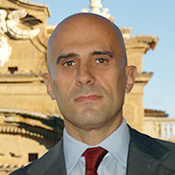
Maurizio Sangalli, D.L. (Pavia), Ph.D. (Università Cattolica del Sacro Cuore, Milan), is professor of early modern history at Università per Stranieri di Siena. The main topics of his research are the Italian social and religious history from the 16th to the 18th century and the history of education in the pre-Unification Italian states. His latest books are Le smanie per l’educazione. Le Scuole pie a Venezia in età moderna (2012); Maria Teresa d’Asburgo. L’arte del possibile (2014), and Una città, due imperi. Amministrazione pubblica e decurionato a Lodi tra Spagna e Austria (secoli XVI–XVIII) (2018).
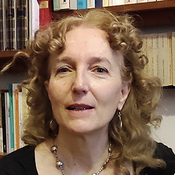
Daniela Saresella, D.L. (Milan), Ph.D. (Urbino), is professor of modern history at Università di Milano, where she is director of the Ph.D. program in historical studies. Her main field of research is the Catholic world in Italy, Chile, the United States, and Canada in the 1960s, 1970s, and 1980s. She has published widely on the debate between Catholic and Marxist intellectuals, interfaith dialogue, and refugee issues including in Middle Eastern cultures. Her latest books are Cattolici a sinistra: Dal modernismo ai giorni nostri (2011); Tra politica e antipolitica. La nuova società civile e il movimento della ‘Rete’ (2016); and Catholics and Communists in Twentieth-Century Italy: Between Conflict and Dialogue (2019). She has also edited Cattolicesimo e laicità. Politica, Cultura e fede nel secondo Novecento, with A. Caavero (2015), and 1945. La transizione del dopoguerra, with G. Formigoni (2017).
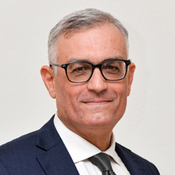
Massimiliano Valente, M.A., Ph.D. (Sapienza, Rome), Diploma in Archives Sciences (Vatican School of Palaeography, Diplomatics and Archives Administration), is associate professor of modern history at Università Europea di Roma and teaches early modern and modern church history on the Faculty of Theology of Pontificio Ateneo Regina Apostolorum in Rome. He previously worked for the Vatican Secret Archives and the Pontifical Committee for Historical Sciences. He has been affiliated with the German Historical Institute (Rome), the Univerzita Komenského v Bratislave (Slovakia), the Sveučilište u Splitu (Croatia), and the Institut Catholique de Paris. His main research topic is Vatican foreign policy during the 19th and the 20th centuries. His latest books are Diplomazia Pontificia e Regno dei Serbi, Croati e Sloveni 1918–1922 (2012); Italia e Prussia 1861–1871 (2020); and L’Ostpolitik della Santa Sede e la Jugoslavia socialista 1945–1971 (2020). He edited, with L. Pettinaroli, Il cardinale Pietro Gasparri, segretario di Stato (1914–1930) (2020). He is also editor of A “Vatican Atlantic Alliance”: Pius XII and the Role of US Papal Diplomats in the Cold War (2024).
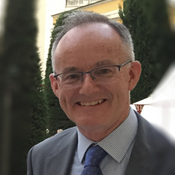
Maurice Whitehead, B.A. (Durham), PGCE (Cambridge), Ph.D. (Hull), FRHistS, is a historian of education with a particular interest in the educational and cultural history of the Society of Jesus and the development of education in the English and Welsh Catholic community at home and abroad from the Reformation period onwards. Since 2015 he has been research fellow and director of heritage collections at the Venerable English College, Rome. He is also a research fellow at the British School at Rome; a visiting research fellow at Durham University’s Centre for Catholic Studies; and emeritus professor of history at Swansea University. His publications include English Jesuit Education: Expulsion, Suppression, Survival and Restoration, 1762–1803 (2013); L’Abbazia di San Savino in Piacenza. Un percorso di ricerca europeo (2023), edited with Graziano Tonelli; and the English and Welsh educational contribution to the Oxford History of British and Irish Catholicism, IV: Building Identity, 1830–1913 (2023).
